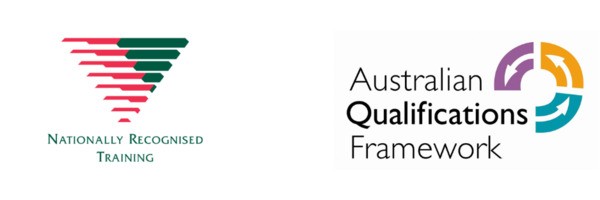OUR RESOURCES
Trade Recognition Service
The Trades Recognition Service (TRS) is a type of skills assessment program for tradespeople who are actively engaged in their respective engineering trades. The TRS program is ideal for any resident in Australia who has the skills – but not the Australian qualification – needed to perform a specific job. Trades recognition can help everyone – from native Australians to long-time migrants and new arrivals – to have their prior learning and experience recognised and counted towards their new Australian certification. Trade Skills Australia offers trade skills recognition in NSW to assist individuals who are skilled but not qualified to find better jobs and move closer to achieving their professional goals.
Benefits of a Trade Certificate in Australia
Why do you need to be certified to work in licensed trades? Starting a career in a trade is a very hands-on experience; why not just learn as you go and rely on your experience to land jobs? Unfortunately, it isn’t quite that simple. Becoming certified in your field is an excellent way to learn in a structured way, ensuring that all bases are covered. It can also qualify you for important registrations and licenses. If you do have extensive prior experience, it can even contribute to your certification through Australian trade recognition. Here are some of the advantages of having a certificate in a specific trade.
-
- You may be able to earn more money. Unsurprisingly, workers with certificates not only find it easier to become employed but also may find that they make more money than uncertified employees. By completing trade skills training, you can boost your income, no matter which trade you choose.
- It may help you get a license. Having a trade license is a significant advantage. Today’s customers expect their tradies to hold licenses, and they’ll ask you about yours before securing your services. You may miss out on a large number of savvy potential customers without a license. While you may be able to pass the required tests and retain licensing through experience alone, you’ll be much more likely to succeed if you first complete the appropriate certificates in your field.
- It demonstrates your work ethic. Just like having a license, being certified shows that your work ethic is strong. This is essential because it proves to customers that you don’t cut corners and do business the right way. It will be easier to build customer trust and loyalty, and your customers will be more likely to recommend you to their friends and family.
- It may keep you safer on the job. Proper training and safety procedures can significantly reduce the risk of becoming injured at work. When you get an Australian Recognised Trade Certificate, it shows that you learned all the best practices in safety for your trade. Improving safety not only helps prevent injuries (to you and any people around you, both customers and co-workers), but it also enables you to avoid the missed work and lost income that may accompany an injury.
- It can fill gaps in your knowledge. You may have years of experience under your belt without ever earning a certificate. Through your dedication and hard work, you’ve learned many things that certified, but less experienced tradies haven’t. However, there may still be gaps in your essential knowledge because of the unstructured way in which you’ve learned. The good news is that thanks to trade recognition, it can be much easier for you to earn your certification than for someone who is just starting in the field.
What You Can Expect from Trade Skills Australia Regarding Trade Recognition in NSW
When you plan to participate in a trade certification check or skills assessment, it helps to know what to expect and be prepared. There are two main stages of skills assessments: the documentary assessment and the skills assessment. What each stage involves can vary depending on your specific occupation.
-
- Documentary assessment. The documentary assessment stage is similar to submitting a CV for a new job. Basically, you’re providing documentation of the different aspects of your trade – for example, proof of work experience and financial evidence. You can prove work experience through documents such as employer references, photographs, or videos. Financial evidence may include wage slips, invoices, or tax documents.
- Skills assessment. The skills assessment stage will differ depending on whether you are in a licensed or unlicensed trade. This stage is the main part of your evaluation. Its purpose is to give your examiners a clear idea of the skills that you possess and how much you understand about your trade. That way, they’ll know where the gaps in your knowledge are (if any) and how to integrate your existing expertise with the remainder of the education you need to achieve full certification.
What You Should Know About Trade Skills Recognition
When it comes to earning the qualification that you need to land better jobs, you should know that three main types of skills recognition can help you. These are:
-
- Credit transfer. Credit transfer refers to the process of recognising the formal studies you have completed in the past that are the equivalent of one or more units that form part of the qualification you are trying to receive. For a credit transfer, you will be required to submit formal academic transcripts or the equivalent that show the units for which you are seeking credit transfer. If the equivalence is accepted, then you will not need to repeat those units of study.
- Recognition of current competency. Recognition of current competency is just what it sounds like: an assessment of your capacity to perform specific tasks. If you have previously completed the requirements for a module or unit of competency and now need to be reassessed to determine your skill level, this may apply. However, recognition of current competency applies only to specific certifications, such as First Aid, which remains current for a short time and then expire.
- Recognition of prior learning. Your existing knowledge, experience, and skills can help you earn a qualification through this process, known as recognition of prior learning. You may be eligible to receive a full or partial qualification without going through formal training, depending on your skill level, saving you a considerable amount of time and money. This process is ideal for those who have significant work experience (paid or unpaid), prior formal training, community work experience, knowledge and skills gained on the job, or any other work or life experiences that have taught you key skills in a given trade.
Trade Skills Australia offers recognition of prior learning services in the engineering industry.
What You Should Know About Trade Skills Recognition
When it comes to earning the qualification that you need to land better jobs, you should know that three main types of skills recognition can help you. These are:
-
- Credit transfer. Credit transfer refers to the process of recognising the formal studies you have completed in the past that are the equivalent of one or more units that form part of the qualification you are trying to receive. For a credit transfer, you will be required to submit formal academic transcripts or the equivalent that show the units for which you are seeking credit transfer. If the equivalence is accepted, then you will not need to repeat those units of study.
- Recognition of current competency. Recognition of current competency is just what it sounds like: an assessment of your capacity to perform specific tasks. If you have previously completed the requirements for a module or unit of competency and now need to be reassessed to determine your skill level, this may apply. However, recognition of current competency applies only to specific certifications, such as First Aid, which remains current for a short time and then expire.
- Recognition of prior learning. Your existing knowledge, experience, and skills can help you earn a qualification through this process, known as recognition of prior learning. You may be eligible to receive a full or partial qualification without going through formal training, depending on your skill level, saving you a considerable amount of time and money. This process is ideal for those who have significant work experience (paid or unpaid), prior formal training, community work experience, knowledge and skills gained on the job, or any other work or life experiences that have taught you key skills in a given trade.
Trade Skills Australia offers recognition of prior learning services in the engineering industry.
Related Services We Provide to an Australian Trade Certificate
At Trade Skills Australia, we offer skills assessment and recognition services for the mechanical engineering and fabrication industries. We recognise prior learning for many different Australian qualifications, such as:
-
- MEM 30319 Certificate III in Engineering Fabrication Trade (Welding). This qualification is for those working in the metal fabrication industry in oil and gas, maintenance, mining, marine, and more. Also known as structural steel and welding trades workers, welders cut, shape, and join metals such as iron and steel for many large and small projects. These workers may also repair small items such as watches and furniture or large items such as buildings and ships. People with this qualification hold job titles such as First-Class Welder, Heavy Welder, Structural Welder, and Pipe Welder.
- MEM30319 Certificate III in Engineering Fabrication Trade (Surface Finishing). This qualification is for people who work in various sectors of the surface preparation and finishing industry. It covers mechanical and chemical surface preparation, including abrasive blasting and protective coating application. Common job titles for individuals with this qualification include Abrasive Blaster, Industrial Coater, Blaster Painter, Industrial Painter, Marine Painter, Industrial Spray Painter, and Powder Coater.
- MEM30219 Certificate III in Engineering Mechanical Trade (Machining). Candidates working in the mechanical engineering industry in marine, mining, or food processing may benefit from this qualification. A machining professional studies specifications and drawings to determine suitable methods, materials, machine settings, and sequences of operations for various machines. They may also fit fabricated components into assemblies, shape cutting tools, check for accuracy using precision measuring equipment and perform maintenance tasks on the machines. Someone with this qualification may hold a job title such as First-Class Machinist, CNC Machinist, CNC Lathe Operator, Manual Machinist, Milling Machinist, or Turner.
- MEM40119 Certificate IV in Engineering. This qualification is for candidates who have honed their skills in their existing trade or added to their skillset from other trades. Depending on their areas of focus, they may possess advanced skills in design, manufacture, assembly, installation, testing, modification, commissioning, fault finding, and maintenance of machinery and equipment. This qualification is also ideal for people who have held leadership roles within the engineering, metal, manufacturing, and associated industries. Jobs within this certification may include CNC programming, maintenance, boilermaking, patternmaking, toolmaking, welding, and plant mechanic.


